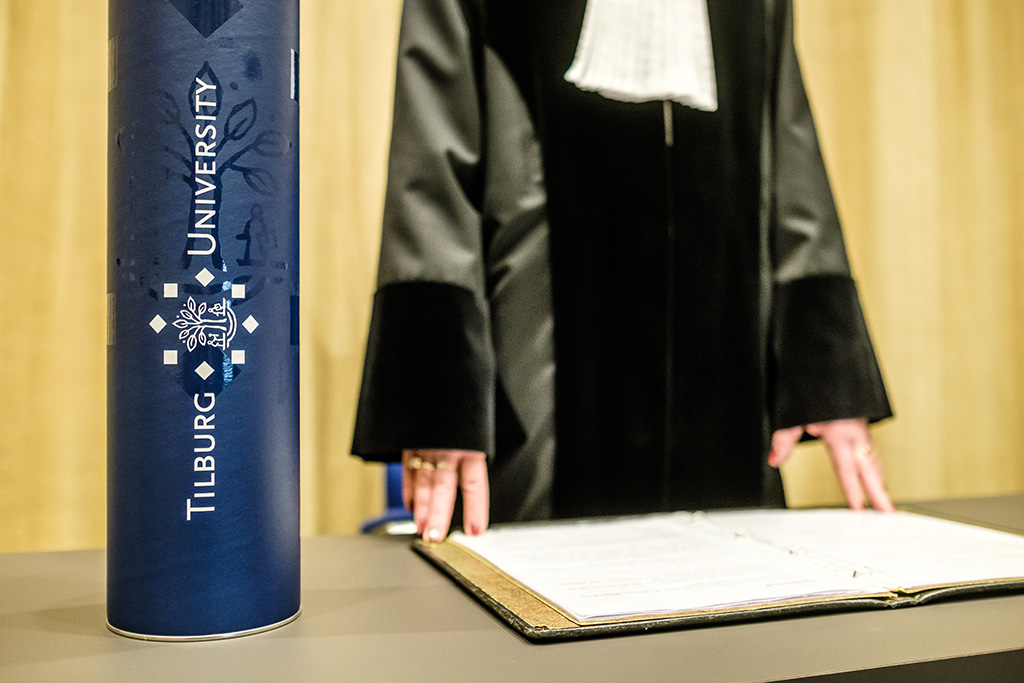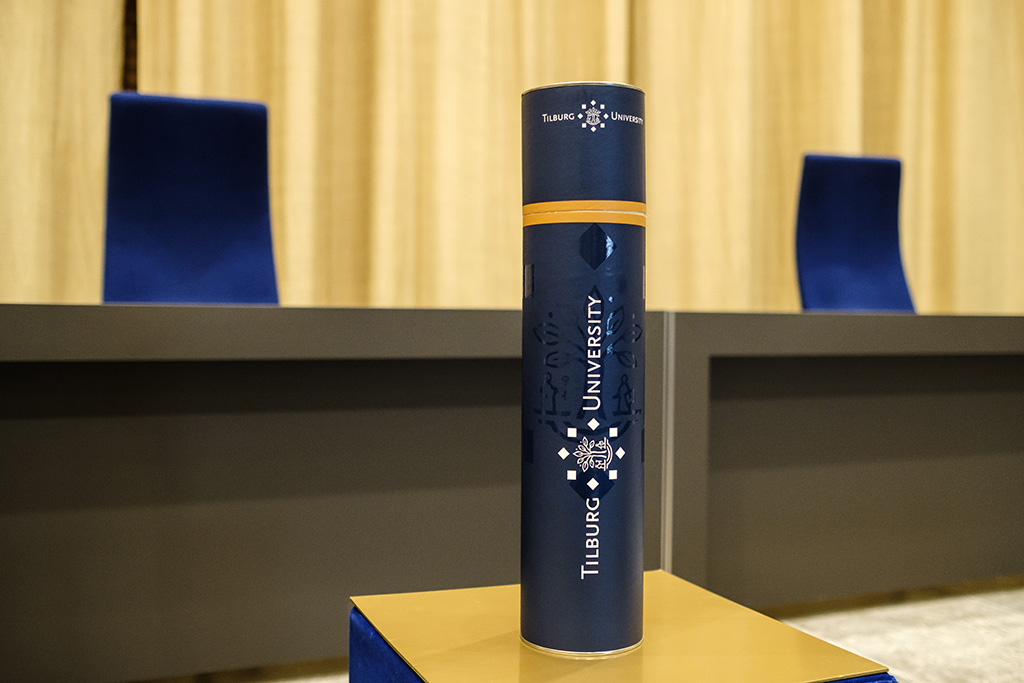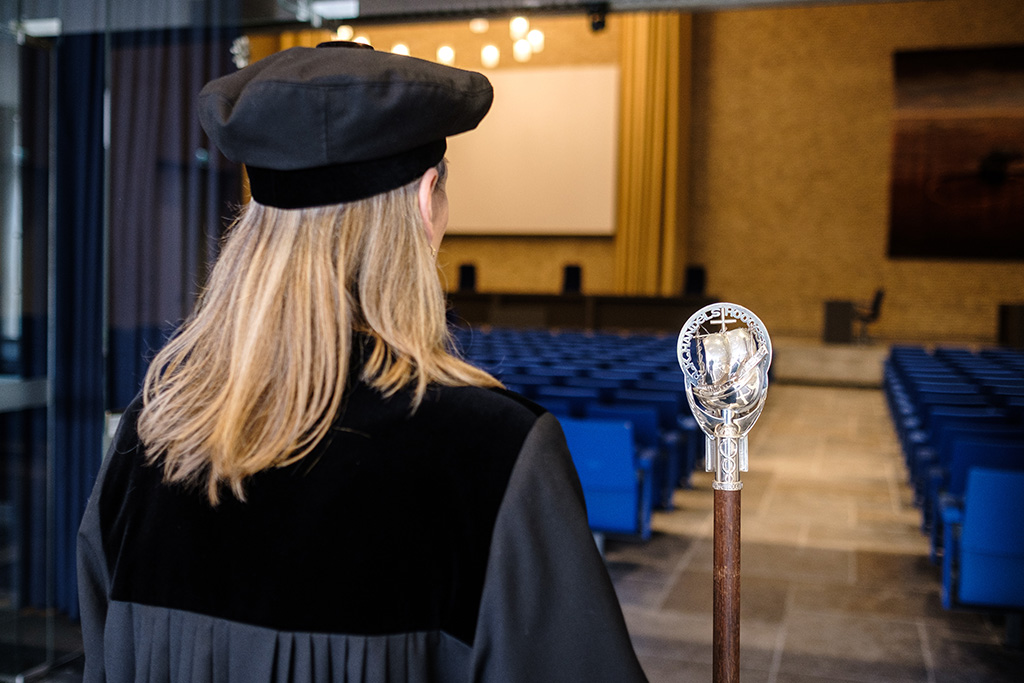PhD researcher Nathalie Swinkels: “I still don’t know what exactly I did wrong.”
There was a lot of talk about her, but not with her. Nathalie Swinkels was in the news this year after her PhD was not awarded during the public defense. Something that normally never happens. Now Swinkels tells her side of the story: “The same thing can still happen to other PhD researchers.”

Just imagine. After years of research, you are ready to receive your PhD and suddenly you hear that the PhD defense has been suspended. Just like that, at the ultimate moment. It happened to Nathalie Swinkels at the end of last year. A shocking and humiliating experience. The thesis was unanimously approved by the PhD Committee, the defense was supposed to be nothing more than a formality.
Emeritus professor Jan Vranken attends the defense and brings the strange course of events to the attention (in Dutch) of Univers. Several statements from the university and Swinkels’ supervisors follow. And an interview with Rector Magnificus Wim van de Donk, who describes the suspended PhD defense as a “perfect storm.”
A perfect storm? Swinkels does not want to know about that. She herself describes her first PhD defense as “the starting point of a Kafkaesque movie.” One in which the university was more concerned about its own reputation than about the well-being and proper supervision of the PhD researcher. “Fortunately, my supervisors Paul Vlaardingerbroek and Anna Meijknecht always stood up for me; that really made me feel good.”
By now, she has happily received her PhD. After a second PhD defense this year, the champagne was uncorked. But Swinkels is still left with questions: “To this day I have no idea what I did wrong.”
Secret ballot, no substantiation
That a PhD defense is primarily ceremonial in nature is something Swinkels also hears prior to her first defense. She knows that her thesis has been unanimously approved. And so, she faces her defense “with confidence.”
Due to COVID-19 The first defense, last November, is online. Because Swinkels suffers from an incurable muscle disease that makes her increasingly immobile, she is allowed to remain seated. But there are problems with the technique, so she cannot understand all the questions properly: “My nerves got the upper hand right from the start. Nevertheless, I answered all questions to the best of my ability. That my first PhD defense was not substandard was, therefore, confirmed later by my coach (who was assigned to me by the university after the defense).”

Annoying, but nothing to worry about. You would think. While waiting for the Committee to return, which takes a very long time, Swinkels begins to suspect that something is wrong. “I was invited to go to another room where the Dean, thesis supervisor, co-supervisor, and two Committee members were sitting. Dean Geert Vervaeke, chair of the PhD Committee, told me he had good news and bad news. He had not read my thesis and did not like my PhD defense but could immediately promise that I would get a second chance for the defense. It is not clear to me exactly what happened behind closed doors, but he had organized an ad hoc improvised secret ballot, in which the majority had voted against.” The majority here means: two to one, because the promotion committee was missing a member and another member only had an advisory role.
A justification for the decision is not given to Swinkels. However, the chair does communicate that she serves as an example to adjust the PhD Regulations in the future because there have been many substandard defenses in the past. Swinkels: “I was left in shock, together with my supervisor, co-supervisor, and paranymph, who tried to cope with the situation.”
A secret ballot, no substantiation, a decision based on future PhD Regulations that do not yet exist, one thing is immediately clear to Swinkels: “This is blatant legal uncertainty where there is no legal protection.”
Questions remain unanswered
What now? Swinkels and her supervisors want clarification and decide to challenge the outcome. Based on the current, valid PhD Regulations, the Code of Conduct, and common practice, they are confident that mistakes will be rectified.
Soon Swinkels experiences that she is given little room. During a conversation in November 2021, the Vice-Dean announced that the decision had been taken: there would be a second PhD defense. Swinkels: “I was very surprised about this because there had been no hearing from both sides with me and my supervisor and co-supervisor. It was agreed that the order of things should indeed have been different, but that the decision had already been made.”
Swinkels is offered a coach and they immediately look at how the second PhD defense can best be handled. She does not get an answer to the question what exactly went wrong during the first PhD defense.
I didn’t dare respond because I didn’t want to jeopardize my second PhD defense; I was too dependent on the university.
Nathalie Swinkels
A long letter from her supervisor and co-supervisor to the Board for Promotions, also goes unanswered. Later, Swinkels learns that the Doctorate Board is reviewing the matter; she receives no request for a substantive contribution. In December, an e-mail arrives: according to the university, nothing went wrong during the first PhD defense.
Swinkels chooses to compromise and agrees to the second PhD defense, which takes place on January 14, 2022. Extra care is taken to ensure that any technical malfunctions are effectively overcome, and the coach, paid for by the university, helps Swinkels to restore the eroded confidence.
With good results, the second PhD defense was successful: “Several people had assured me that Professor van Genugten would be a good Committee chairperson and he was objective. Afterwards, I received a handwritten congratulation from the Rector Magnificus, with a proposal to meet up.”
Trust in improvement is gone
The degree is in the pocket, but the trust has not returned. Well, the confidence in herself has returned, Swinkels says. On the other hand, there is a great distrust of the university. The fact that months after her second PhD defense she still does not know what she did wrong, and that she does not see how future PhD researchers will be better protected, stings.
The university was also careless in its communication with the outside world, Swinkels argues. A press release from the university, published on December 20, still bothers her: “The university had not handled the case ‘with the utmost care and in proper consultation with all parties concerned’, as was claimed. Fortunately, my supervisor and co-supervisor had the courage and integrity to bring this out in the open. In fact, they were not talking to us at all, but about us, and mainly in the interest of the university, with the necessary framing. I did not dare to react because I did not want to jeopardize my second PhD defense; I was too dependent on the university, and I still did not know what I had done wrong.”

An interview with the Rector Magnificus in Univers also goes wrong. After the second PhD defense, Swinkels had repeated contact with the Rector Magnificus; she would like to contribute ideas about a better elaboration of the PhD Regulations. “It struck me during various moments of contact with him that his explanation of events was always slightly different, and this is again evident in the interview. I found it very painful that he said a few times how Dean Geert Vervaeke was a victim and suffered under the situation.” Swinkels then decides to end contact with the university. According to her, nothing has changed since then either.
Possible solution: better PhD Regulations?
In the meantime, Swinkels is doing well again. The suspended PhD defense has left deep marks on her, but she is resilient and always felt supported by her supervisors. Nonetheless, she hopes that better PhD Regulations will be put in place soon.
“In my opinion, there are problems with the PhD Regulations. The main one is that they do not address the negative evaluation of a PhD defense, if that is even a possibility. Obviously, a PhD Committee has an opinion, but there are no established, public, and objective evaluation criteria for a PhD defense.”
One of the Committee members was absent on the date of Swinkels’ first PhD defense. “What can be the far-reaching consequences of a missing committee member? The Regulations are also unclear on this. I had in fact answered the question of the absent Committee member, but the committee member—despite what is described in the Regulations—did not have the right to vote at that time because of his absence. It is important for PhD researcher to know what the consequences are if a member is absent and/or ‘only’ an advisor, especially if opinions are divided about the PhD defense. For unanimous approval of the thesis, it clearly states that there must be at least four committee members. It says too little about the PhD defense, and so you are totally left to the whim of a chairperson with his or her own agenda.”
If those changes come to pass, and the university also reflects on its own stance, Swinkels’ suspended PhD defense may have been good for something after all. She hopes so. Because as long as everything remains the same, according to Swinkels, future PhD researcher are also at risk during the public defense.
Translated from Dutch by Riet Bettonviel






